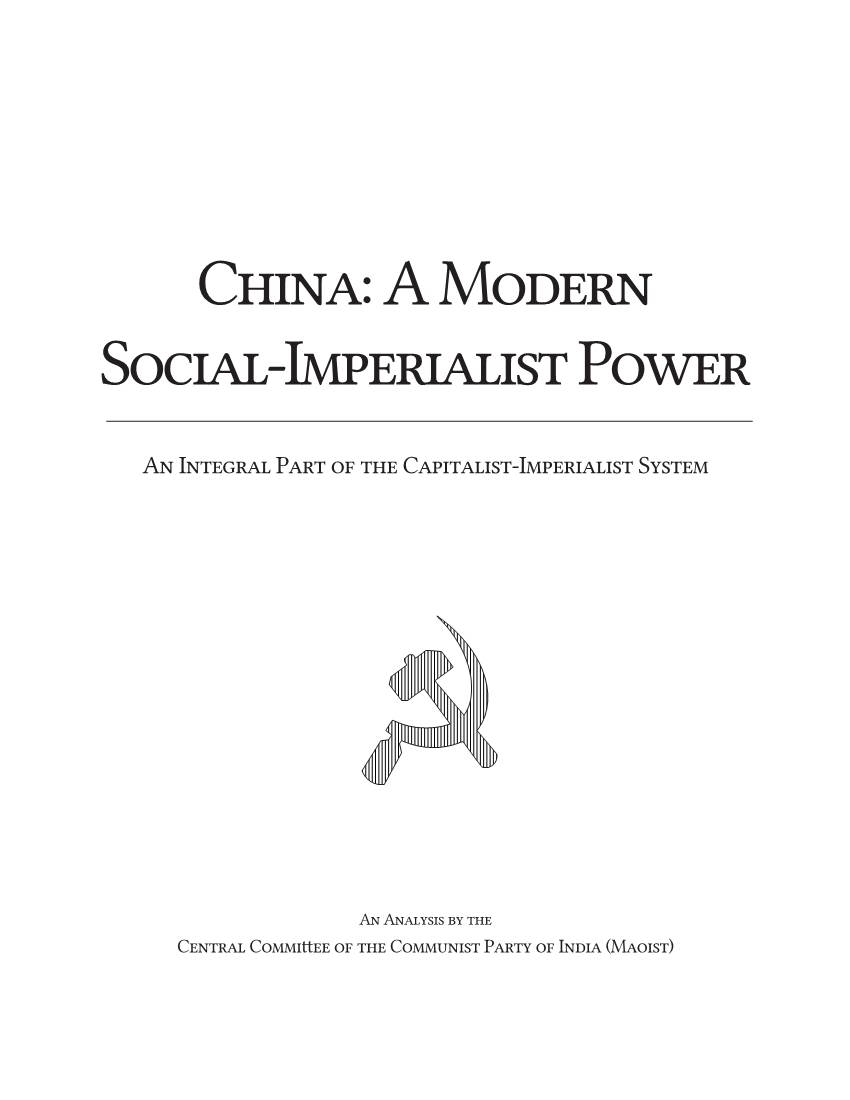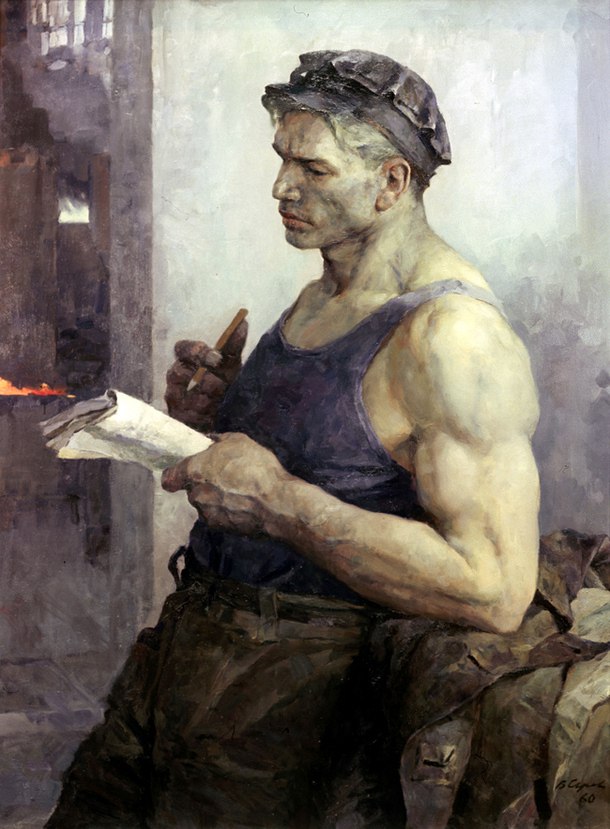The CPIA(M) has produced some good texts, but the ‘(Maoist)’ is significant.
I have not read the linked book, but I imagine it is a critique of China for anything and everything that does not line up with Mao’s collected works (and the CPIA(M)'s interpretation / development of those works). That’s my impression of some of its other outputs.
I would be tempted not to dismiss it outright, to the extent that it presents primary research. But I would be critical of the narrative imposed on the data. The first paragraph of the book (of the translator’s foreword) contains a few red flags (of course, the translator may not be giving the original source credit):
In May of 2017, the Central Committee of the Communist Party of India (Maoist) initiated a study posing the question of whether China had or had not become a new imperialist power. The resulting report answers in the affirmative: In the view of the CPI(Maoist), the People’s Republic of China has become a social-imperialist power. Further, the Chinese Communist Party, and its ideology of Socialism with Chinese Characteristics deceives and misleads socialists the world over, rejecting internationalism and revolution for a suite of revisionist justifications upholding and furthering the bourgeois dictatorship in China. The CPI(Maoist) calls on the CCP to abandon its current capitalist-imperialist trajectory, and for progressive comrades within the party to initiate struggle against the imperialist and monopoly capitalist ruling clique.
From a logical point of view, this is troubling:
- What is the difference between imperialism and social-imperialism?
- What is meant by ‘revisionist’?
- In what sense is the CPC a dictatorship of the bourgeoisie?
- Why say CCP rather than CPC in a text that presupposes its own rigour and objectivity?
- What is the significance of finding imperialist practices in China (if they are found) in light of framing China as having a ‘capitalist-imperialist trajectory’, considering that the CPC would reject this framing and likely argue that any capitalism in China is part of a revolutionary-transitionary trajectory?
I would expect the answers to these questions in the book. Otherwise I would be skeptical. If answers to these questions are not transparent in the text, I would question its rigour. But either way, finding or not finding those answers to those questions would determine how valuable the research is. (I.e. valuable for presenting a possibly flawed but good faith argument, or not valuable for presenting an argument that is premised on anti-CPC sentiment in bad faith.)
It is also worth noting that the final point in the quote above is very crafty writing, as it gives the CPIA(M) a convenient get-out clause if it is wrong. This is worse than academic hedging. If it turns out that China does implement more and more socialism in the coming decades, the CPIA(M) can claim that China did in fact change its trajectory (because of or regardless of the CPIA(M) suggestion). And if not, the CPIA(M) can claim that China is still on the wrong path. The claim is written in non-falsifiable terms.
What is the difference between imperialism and social-imperialism?
I would love to hear a proper answer to this. Doesn’t the implication of social-imperialism contradict the base–superstructure model of dialectical materialism?
The term “social-imperialism” was invented by Trotskyists to justify their habit of attacking and denigrating the USSR and adopting a “both sides bad” stance to the global class war (aka the “cold war”). The USSR was constantly slandered as “social-imperialist” by the imperialism-compatible western left. It is a meaningless label that was only made up to somehow try to square the circle of a socialist country that was the greatest enemy of the capitalist imperialist camp and that contributed more than any other power in history to decolonization and liberation movements in the global south allegedly being at the same time itself imperialist. It made no sense then and it makes no sense now for the PRC.
How can a country be imperialist when it is socialist? The very notion goes against Lenin’s recognition of imperialism as the highest stage of capitalism. The simple answer is that it cannot. This is why it is vital for those seeking to muddy the waters and confuse the global proletariat, if they wish to be able to credibly label China as imperialist, to first deny China’s socialist nature. Hence all the accusations you hear of “state-capitalism”, China being “socialist in name only”, etc. This is much more effective than the whole “social-imperialism” angle that the average person is not gonna understand unless they are already a dyed in the wool ultra-leftist fully immersed in Trotskyist/Maoist dogma and terminology.
Ironically, the closest definition you can get for “social imperialism” when pressing Maoists is just cultural imperialism. Which of course the United States and the West are the core proponents of. Which also makes little sense, because if China was “lying” why keep up the veneer of socialism??? It would be insanely more profitable for the bourgeoisie to just become a liberal bourgeoisie representative “democracy” and fully integrate into the West’s economy.
I honestly can’t think of a single instance of China directly influencing a target country with a “social” or cultural imperialist model. Even the DPRK, who has been intimately tied to China socially, economically, and politically for the past 70 years is almost largely unaffected by China in every aspect. On the flip side, what is Canada other then a simple America 2.0 after decades of direct US influence?




